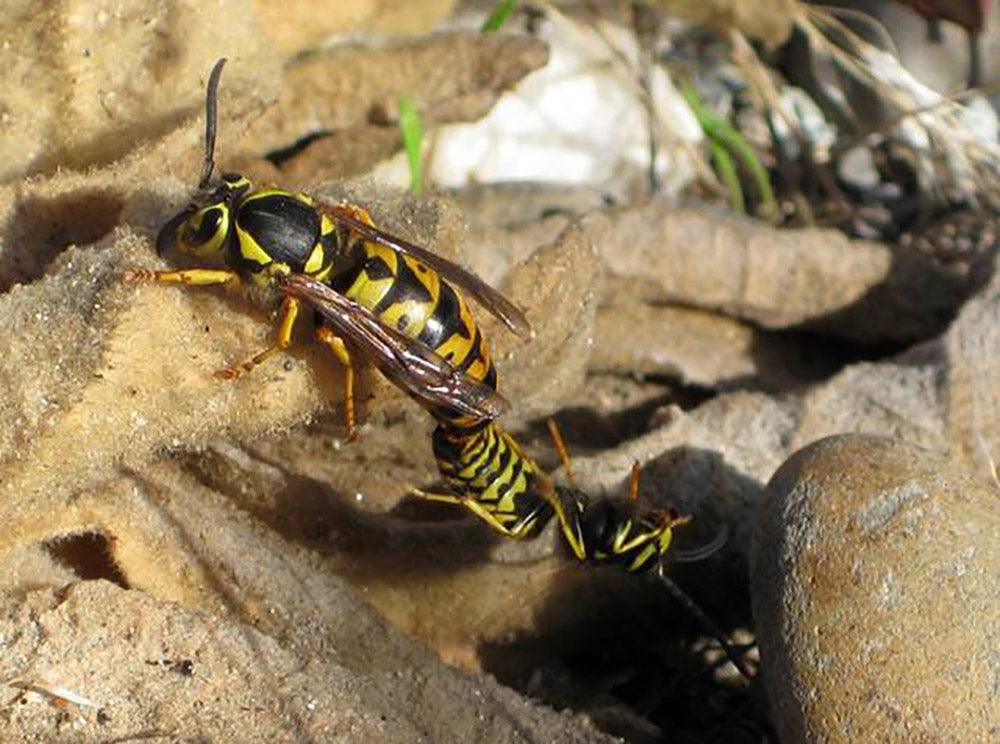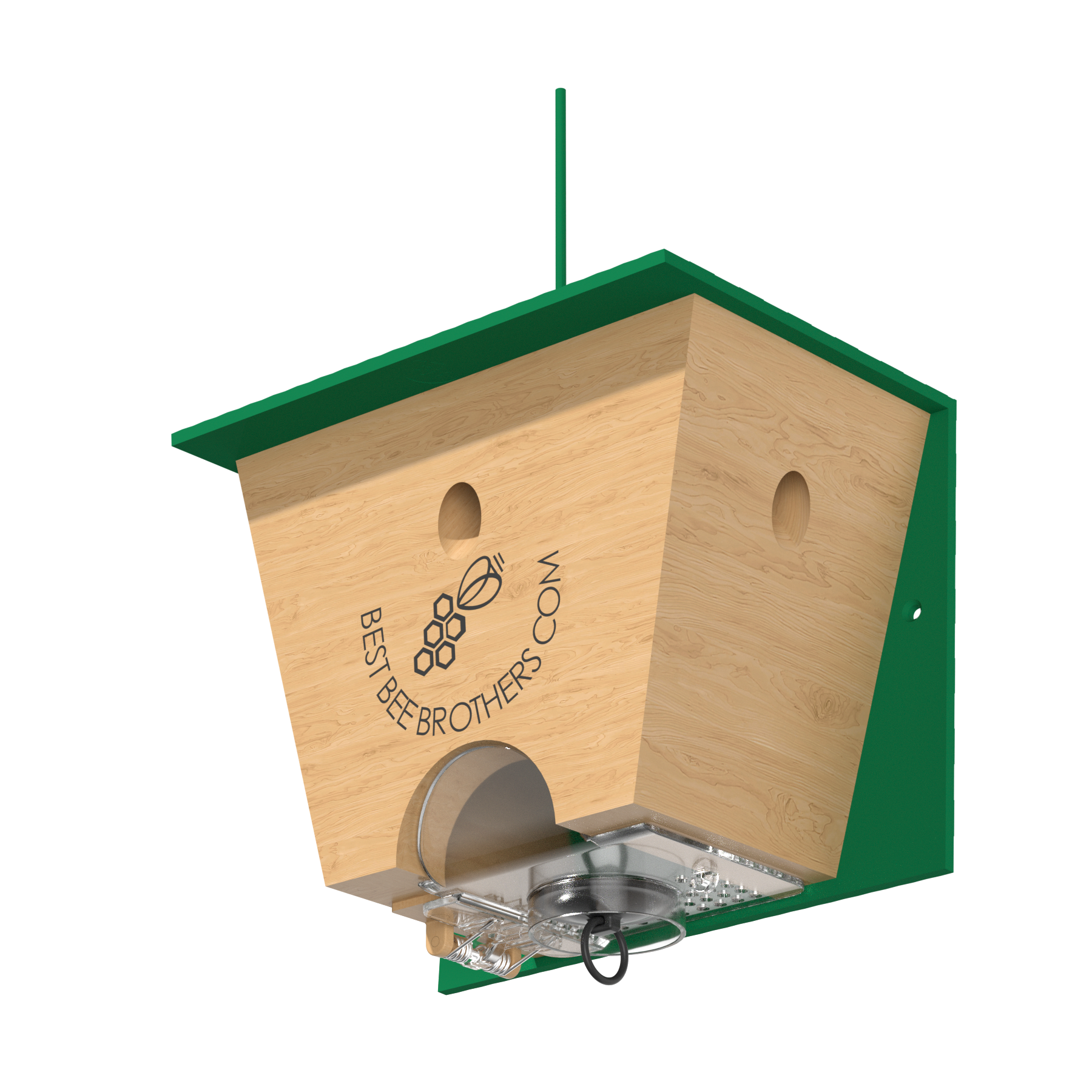Mosquito Predators: What Eats Mosquitoes?
You know the routine by now: buzz, buzz, itch, buzz, itch, itch…Every year, mosquitoes annoy us, buzzing in our ears when the weather warms up and biting us when we least expect it. But they’re an important part of the food chain...one we’re sometimes at the bottom of!
Luckily for us, plenty of creatures feast on those pesky bloodsuckers before mosquitoes can get to us. Just who are these mosquito slayers? Some of them are unexpected heroes. And we’ll reveal them all, but first, let’s take a closer look at their pesky prey.

Mosquito Basics
Worldwide, there are over 3,000 mosquito species. Of these species, about 200 live in the continental United States and territories, bothering us in backyards and on hiking trails – even in our homes – from sea to shining sea. But not all make meals out of humans. In the US alone, only 12 species bite us. In fact, in 2014, scientists discovered that two subspecies of Aedes aegypti, the mosquito species responsible for much of the world’s dengue and yellow fever infections, differ in their interest in humans because of a genetic marker. And of the species that do bite, only the females feed on blood, which they need to produce their eggs.
Deadly Pest or Pollinator?
Mosquitoes are often called the world’s deadliest animal, and by the numbers, it’s true: on average, mosquitoes kill more than 700,000 people each year and sicken millions more as vectors of malaria, West Nile virus, and the Zika virus, to name just a few.
With all this terrible data, what good can mosquitoes possibly do? Despite their well-deserved deadly rep, mosquitoes do play an important role in the world’s ecological health. And some that don’t bite perform an essential service: pollination!
In the US, the male Aedes communis or snow pool mosquito, found in the eastern part of the country, pollinates the blunt-leaf orchid.

Food for Fauna
Imagine for a moment a world without mosquitoes. No mosquito bites at backyard barbecues or having to swat at a buzzing sound in the night. No widespread malaria, no zika virus or yellow fever. The benefit to humans is clear, but because of the sheer number of mosquitoes, eliminating them entirely would be impossible. Fortunately, mosquitoes are a reliable food source for many animals that eat mosquitoes – our heroes! But who are they? (Hint: Most have wings and some have fins.)
Birds
Our feathered friends like to swoop and snack on mosquitoes (among other insects). Swallows, swifts, Purple Martins, and nightjars all eat them. Unfortunately, with the exception of the nightjar, most birds are diurnal, meaning they feast on mosquitoes only during the day, when they’re less active. However, attracting these birds to your backyard can help control the mosquito population.

Do Bats Eat Mosquitoes?
When birds sleep, bats clock in for the night shift on mosquito control. But how many mosquitoes do bats eat? The exact number is unknown, and though the bat’s effect on the mosquito population has been disputed, a recent study in the Journal of Mammology indicates that they may play a more important role in keeping mosquito populations down than was previously known. Researchers confirmed that little brown bats were more voracious mosquito eaters than their big brown bat counterparts, with more than 70% of diet samples containing mosquitoes!

Mosquito Fish
Mosquitoes start their life cycle in the water as eggs, where they hatch into larvae and don’t leave the water until they reach the adult stage, a process that takes about a week. So why not stop them before they take flight? That’s what the mosquitofish does! The mosquitofish, or gambusia, is a highly efficient mosquito predator. In fact, some California counties provide them to residents for free to combat mosquitoes in standing water and unused swimming pools.

Other Insects
Do dragonflies eat mosquitoes? Yes! And they start early in life. The dragonfly, with its distinctive color, long stick-like body and double wing, and its cousin the damselfly, are effective and deadly mosquito predators during the day. Like mosquitoes, their life cycle begins in the water, so dragonfly young are born with a killer instinct to eat mosquito larvae before they can mature into mosquito adults – and bother us.

While our natural allies can take a bite out of the mosquito population, they’re no match for the innumerable amount of mosquitoes worldwide. Until scientists find a way to neutralize the worst offenders, prevention is key: use common-sense measures like covering up your skin when you can, and try all-natural mosquito repellents – spray, incense, and wrist bands – from www.bestbeebrothers.com. If you’ve already fallen victim, try our bug bite sucker for some quick mosquito bite relief!
- Mosquitoes,” Animals, Reference, National Geographic, accessed November 5, 2021, https://www.nationalgeographic.com/animals/invertebrates/facts/mosquitoes.
- Mosquitoes in the United States,” Centers for Disease Control and Prevention, accessed November 5, 2021, https://www.cdc.gov/mosquitoes/about/mosquitoes-in-the-us.html.
- “Mosquitoes in the United States,” CDC.
- Sedeer el-Showk, “Why Do Mosquitoes Bite Humans?,” Accumulating Glitches (blog), Scitable by Nature Education, December 8, 2014, https://www.nature.com/scitable/blog/accumulating-glitches/why_do_mosquitoes_bite_humans/.
- “What Is a Mosquito?,” Centers for Disease Control and Prevention, accessed November 5, 2021, https://www.cdc.gov/mosquitoes/about/what-is-a-mosquito.html.
- “Mosquitoes: World’s Deadliest Animal,” IS Global, Barcelona Institute for Global Health, August 18, 2017, https://www.isglobal.org/en_GB/-/mosquito-el-animal-mas-letal-del-mundo.
- Zoe Statman-Weil, “Aedes communis: The Pollinating Mosquito,” US Forest Service, accessed November 5, 2021, https://www.fs.fed.us/wildflowers/pollinators/pollinator-of-the-month/aedes_communis.shtml.
- Erica Cirino, “Can Birds Survive without Mosquitoes?,” Audubon, March 10, 2016, https://www.audubon.org/news/can-birds-survive-without-mosquitoes.
- Amy K. Wray, Michelle A. Jusino, Mark T. Banik, Jonathan M. Palmer, Heather Kaarakka, J. Paul White, Daniel L. Lindner, Claudio Gratton, and M. Zachariah Peery, “Incidence and Taxonomic Richness of Mosquitoes in the Diets of Little Brown and Big Brown Bats,” Journal of Mammalogy 99, no. 3 (June 2018): 668–74, https://doi.org/10.1093/jmammal/gyy044.
- Mosquitofish,” Environmental Health and Quality, San Diego County, accessed November 5, 2021, https://www.sandiegocounty.gov/content/sdc/deh/pests/wnv/prevention/chd_wnv_mosquito_fish.html.
- Deborah Tukua, “Attract Dragonflies for Mosquito Control,” Farmers’ Almanac, updated July 23, 2021, https://www.farmersalmanac.com/attract-dragonflies-35729.
- Robin Ngaim, “The Secret Life of Dragonfly Larvae,” NParks Buzz 4, no, 19 (2013), https://www.nparks.gov.sg/nparksbuzz/issue-19-vol-4-2013/conservation/the-secret-life-of-dragonfly-larvae.









Leave a comment
All comments are moderated before being published.
This site is protected by hCaptcha and the hCaptcha Privacy Policy and Terms of Service apply.